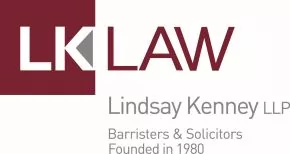本文为您介绍BC省《家庭法》中"配偶 (spouse)"一词的定义。点击此处可阅览中文版
Whether or not a person is entitled to child and spousal support or a division of family property depends on whether they meet the legal definition of a "spouse" under the BCFamily Law Act. In some cases, a person may be a spouse for the purposes of child and spousal support, but not for property division. Read on to find out why.
The Definition of "Spouse" in the Family Law Act
The definition for "spouse" can be found in section 3(1) of the FLA, which provides that a person is a spouse for the purposes of this Act, if:
- a) the person is married to another person, or
- b) the person has lived with another person in a marriage-like relationship, and
-
- i) has done so for a continuous period of at least 2 years, or
- ii) except in Parts 5 [Property Division] and 6 [Pension Division], has a child with the other person.
The language in section 3(b)(ii) allows for a hypothetical scenario where two individuals are considered spouses for support purposes if they have a child together, but not necessarily so for property division. Let us consider how this scenario may play out between Anne and Bart.
Anne and Bart's Story
Anne and Bart met each other in December 2023 and they quickly entered into a romantic relationship. In January 2024, Anne found out that she was pregnant with her and Bart's child. That same month, she moved into Bart's house and the parties started cohabiting.
In October 2024, their daughter Cassie was born. Unfortunately, soon after Cassie's birth, differences arose between Anne and Bart. The parties officially separated in December 2024, with Anne moving out from Bart's place to live temporarily with her parents.
In January 2025, Anne took Bart to court. On the issue of parenting arrangements, the judge found that it would be best for Cassie to primarily reside with Anne, at least for the time being.
Anne is now seeking child support, spousal support, and the division of family property from Bart.
Anne's Claims in Court
- Anne claims that Bart should pay her child support to care for Cassie.
- Anne seeks spousal support because she requires support to get back on her feet after separation. She says the support would also compensate her for her unpaid labour during the relationship (for being a stay-at-home partner while Bart pursued his career).
- Anne also claims that the increase in the market value of Bart's house from January 2024 to present is family property, to which she is entitled to half.
In order to succeed in her claims, Anne has to prove that she and Bart are "spouses" under the FLA. Are they?
Are Anne and Bart Spouses under the FLA?
If Anne and Bart were legally married, then the answer would be yes: the definition of "spouse" will not hinder any of the three claims Anne filed against Bart.
However, if Anne and Bart were only living in a marriage-like relationship (colloquially known as "common law partners"), we require a different analysis:
- Anne can still seek child support from Bart. Although they were together for only under one year, they meet the definition under section 3(1)(b)(ii) of the FLA, because they had a child together. The exact amount and duration of child support Bart will pay Anne depend on factors such as Bart's income and the child's circumstances.
- Similarly, Anne and Bart are also "spouses" for spousal support purposes. Whether the judge will order Bart to pay Anne spousal support, and if so, at what amount and for how long, will depend on other factors between Anne and Bart. However, Anne's spousal support claim will not be dismissed at the outset for failing to meet the definition for "spouse."
- Nevertheless, under the FLA, Anne cannot claim a share of the increase in the value of Bart's house. This is because they were never legally married, nor have they been in a marriage-like relationship for at least two years. In other words, Anne and Bart do not meet the definition of "spouse" under section 3(1) of the FLA.
We Are Here to Help
Many people find legal terms abstruse. Thefamily practice group at LK Laware equipped with the knowledge and experience to help you navigate legal definitions.
We also encourage you to check out more blog posts authored by our family lawyers. Having read about the hypothetical legal disputes between Anne and Bart, you may be intrigued by the following related topics:
What exactly does "marriage-like relationship" mean?Contrary to popular belief, whether two people are living under the same roof or physically intimate is not a determinative factor on its own.
What factors are relevant for determining a party's income which comes from multiple sources? How are children's special and extraordinary expenses apportioned between their parents?These are called Section 7 expenses such as costs arising from children's medical or dental care, extra-curricular activities, post-secondary education.
While some parties claim child support for the months and years to come, some claim retroactive support dating back in time.What did the Supreme Court of Canada have to say about retroactive child support?
About Mackrell International – Canada - Lindsay Kenney LLP is a full service business law firm with offices in Vancouver and Langley, BC and a member of Mackrell International. Mackrell International – Canada is comprised of four independent law firms in Alberta, British Columbia, Ontario and Quebec. Each firm is regionally based and well-connected in our communities, an advantage shared with our clients. With close relations amongst our Canadian member firms, we are committed to working with clients who have legal needs in multiple jurisdictions within Canada.
This article is intended to be an overview and is for informational purposes only.


